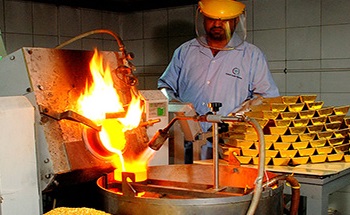Africa is a major producer of gold in the world, producing up to 30% of global production in gold mining africa. Africa has historically been recognized for its exceptional gold resource potential yet remains relatively under-explored. The opportunity to acquire prospective gold resource projects in Africa, and assure security of tenure, is often lost through failure to recognize and acknowledge the interests of local stakeholders.Although gold mining industry in South Africa is one of the global leaders in gold production, it also has the highest average production costs in the world. Coupled with labour problems, lowering grades as well as several mines reaching the end of their lives, it is not anticipated that South African production will increase in the future. Although Zimbabwe has historically been a prominent gold producer in Africa, political and economic issues could cause production problems for local producers. Tanzania and Mali are rapidly becoming Africa's newest gold producers with several mines being commissioned or in final feasibility stages. Ghana is still a major gold producer in Africa. Other countries contribute steadily to Africa's gold output. Much of the recent and ongoing success in tapping these areas' mineable gold reserves is simply due to the fact that low-grade (to 1.3 grams / tonne gold) near-surface (oxidised) ores can be recovered economically. A new challenge will be to economically recover low-grade sulphide ore by open pit and/or underground methods.
by gold
5:18 PM
Africa is a major producer of gold in the world, producing up to 30% of global production in gold mining africa. Africa has historically been recognized for its exceptional gold resource potential yet remains relatively under-explored. The opportunity to acquire prospective gold resource projects in Africa, and assure security of tenure, is often lost through failure to recognize and acknowledge the interests of local stakeholders.Although gold mining industry in South Africa is one of the global leaders in gold production, it also has the highest average production costs in the world. Coupled with labour problems, lowering grades as well as several mines reaching the end of their lives, it is not anticipated that South African production will increase in the future. Although Zimbabwe has historically been a prominent gold producer in Africa, political and economic issues could cause production problems for local producers. Tanzania and Mali are rapidly becoming Africa's newest gold producers with several mines being commissioned or in final feasibility stages. Ghana is still a major gold producer in Africa. Other countries contribute steadily to Africa's gold output. Much of the recent and ongoing success in tapping these areas' mineable gold reserves is simply due to the fact that low-grade (to 1.3 grams / tonne gold) near-surface (oxidised) ores can be recovered economically. A new challenge will be to economically recover low-grade sulphide ore by open pit and/or underground methods.
by gold
11:46 AM
 |
| Martha gold mine constitute open pit mine that is very unique, located in the township of Waihi, New Zealand |
Gold mining in Waihi has a history that spans three centuries. Gold was discovered in the 1800s and mined underground in the first half of the 1900s. The last 24 years of the 1900s focused on exploration
The Martha Mine has been operating since 1988. Martha gold mining project was the first major hard rock mining operation to be commissioned following the resurgence of the gold mining industry in New Zealand in the late 1970s. The mining licence was granted for the open pit Martha Mine in 1987 and development and mining of the Martha Mine open pit. In the 2000s
 |
| Mineral Ore deposit in Martha gold mine New Zealand |
MINING PROCESS IN MARTHA GOLD MINE NEW ZEALAND
Subscribe to:
Comments (Atom)




